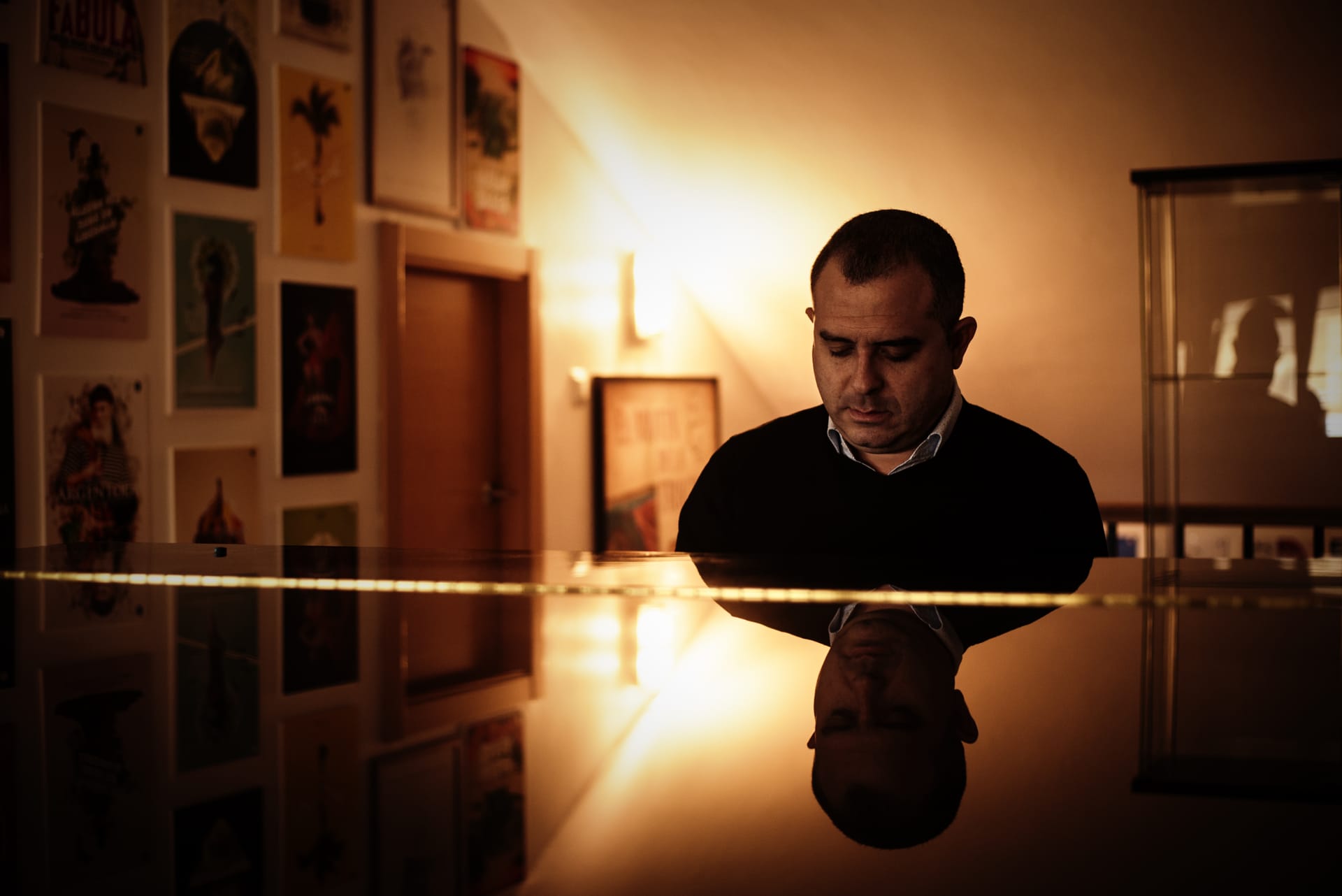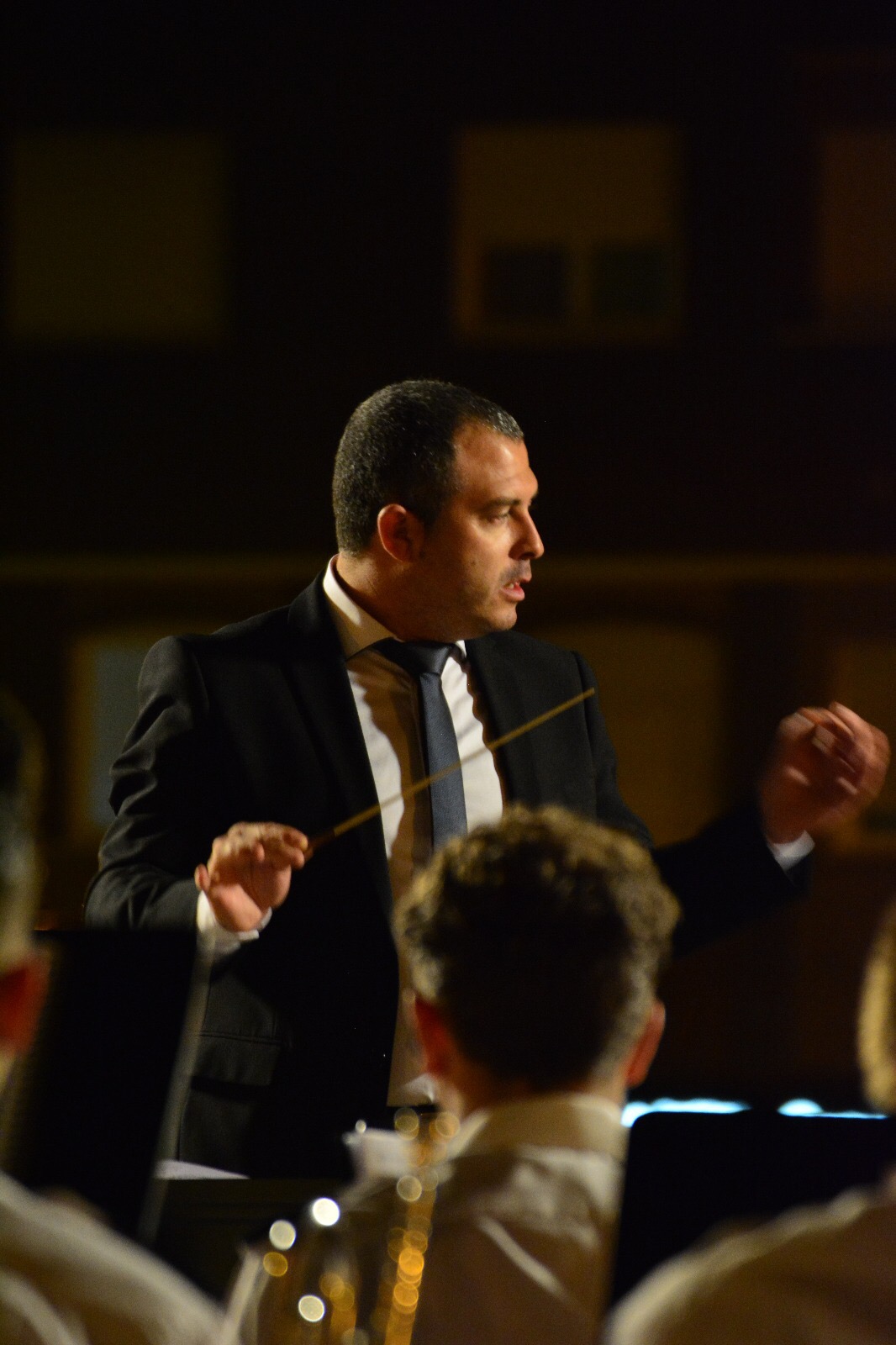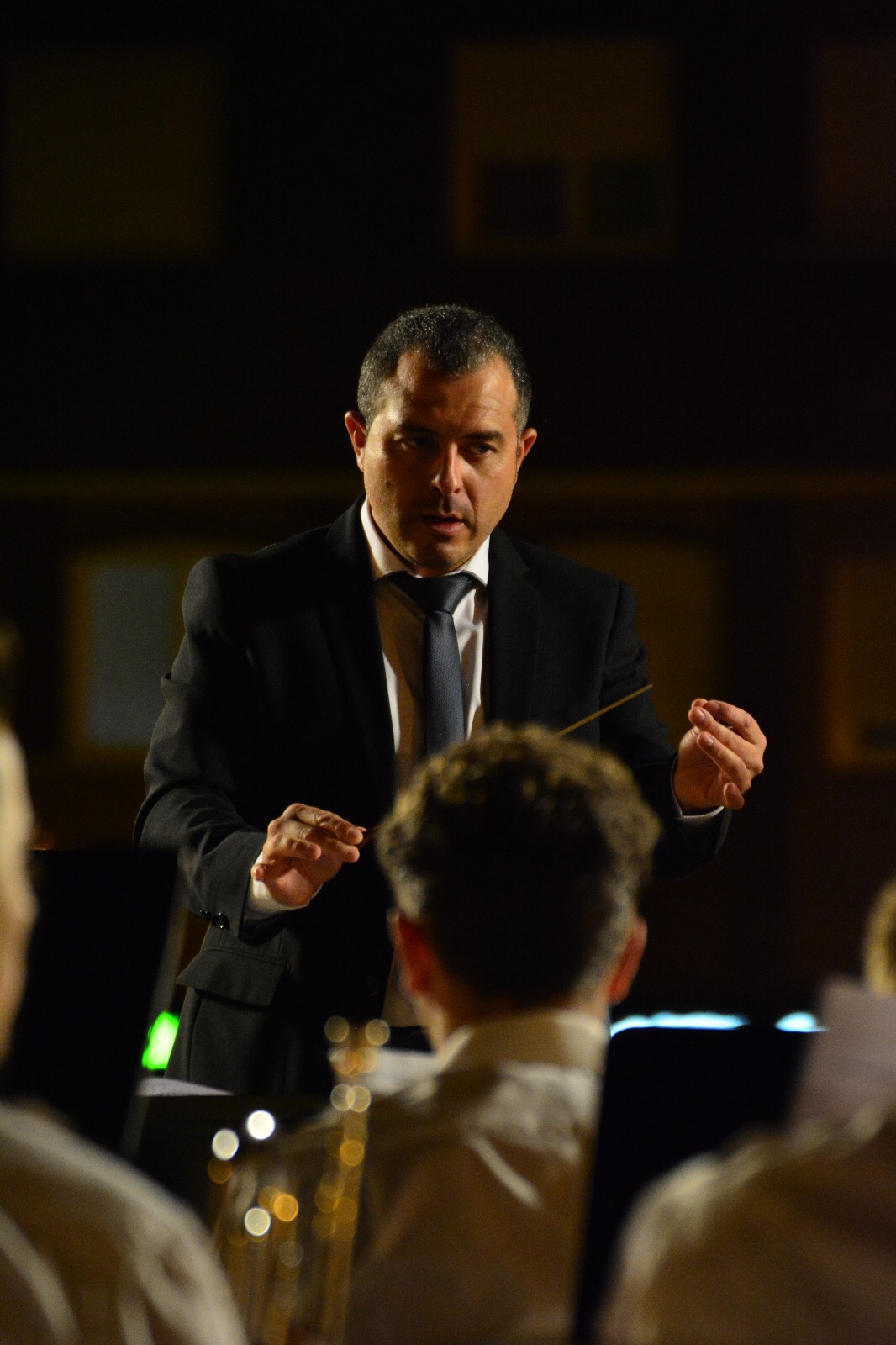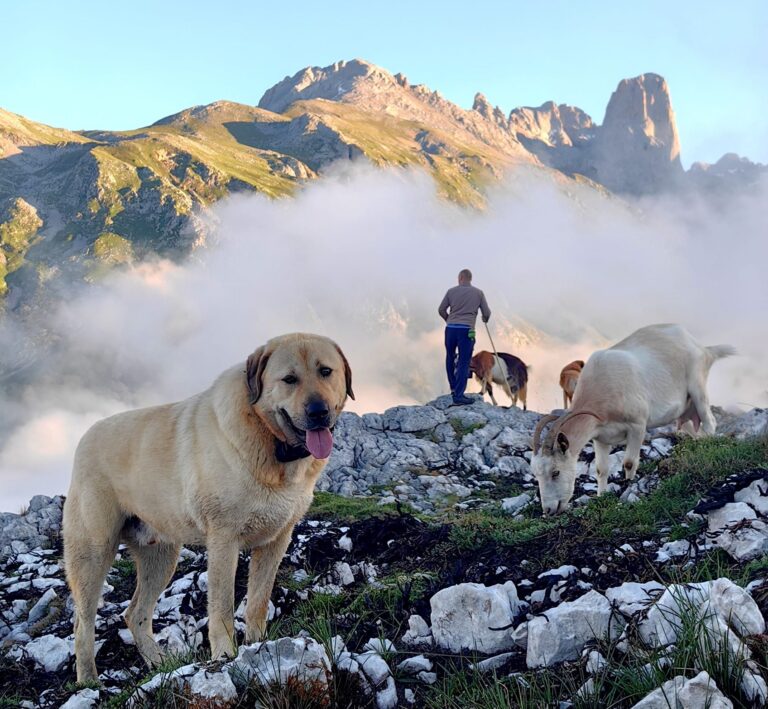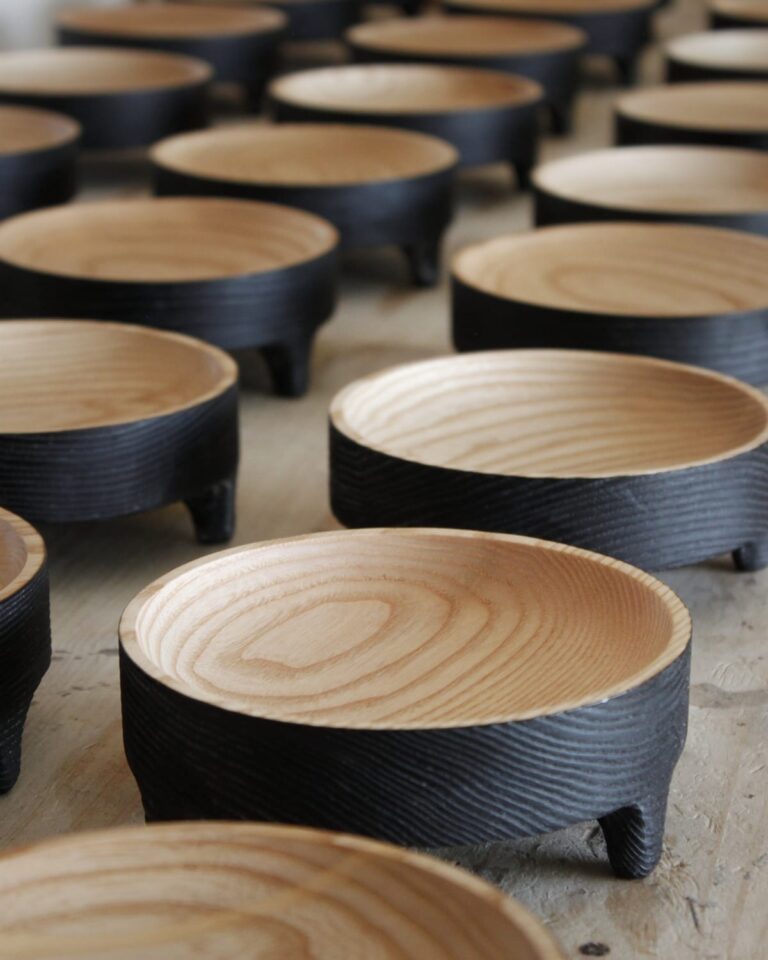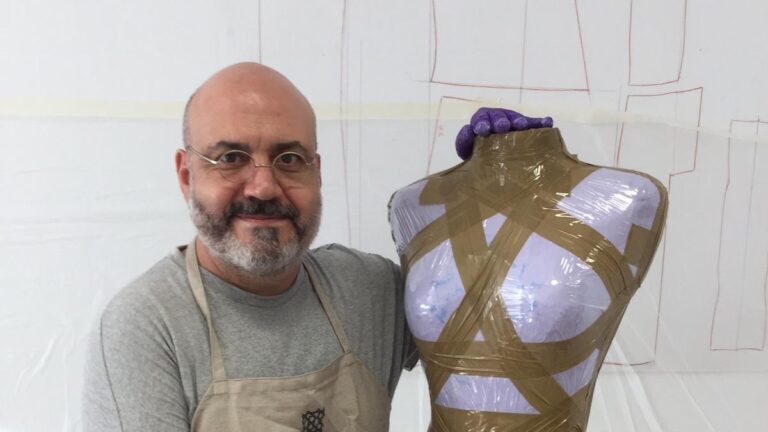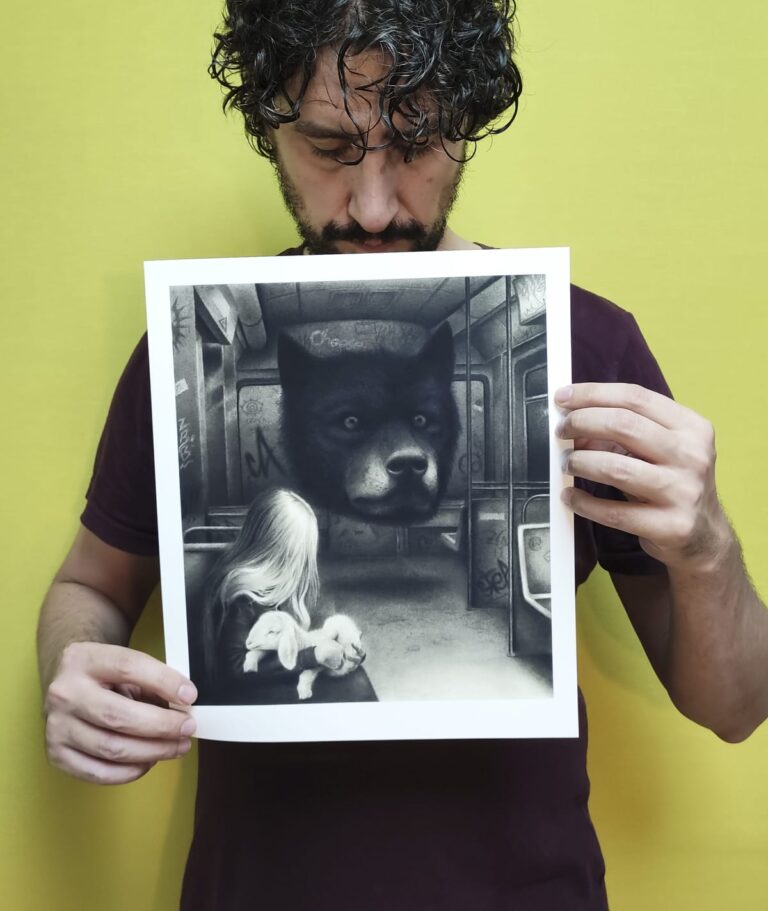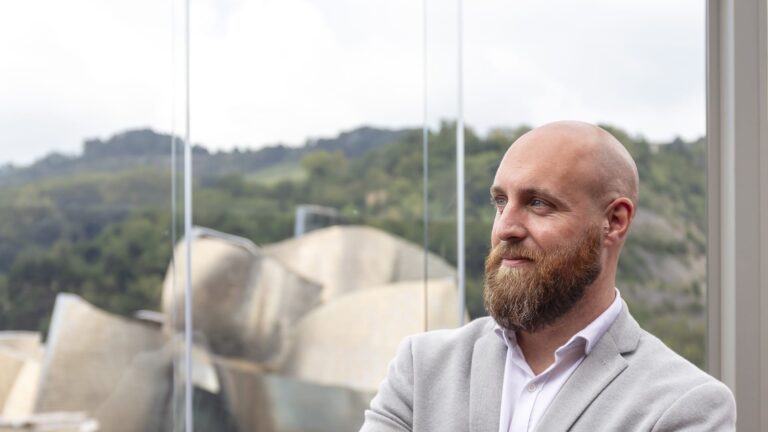David Rivas
He is music. The world revolves around this discipline when we refer to this “craftsman” of the musical staff. Teacher, director, composer, musician, jury… But it is also hard work: when he is not teaching, he is expanding his catalog of more than two hundred compositions, recording an album, directing a band - or several on the same day - playing his saxophone, caressing his piano, awarding a prize or receiving one himself…
He is a good music worker, as there are. Thinking, writing, and performing art, with infinite passion, excessive care, and excessive detail, result in agile, melodic, and harmonically simple music, very descriptive and attractive for performers and listeners. His aim is not only his artistic pride but to reach a large group of musicians and groups that can use his compositions to perform them. To spread music. Hence, his pieces have been performed and heard in theatres and auditoriums in more than twenty countries.
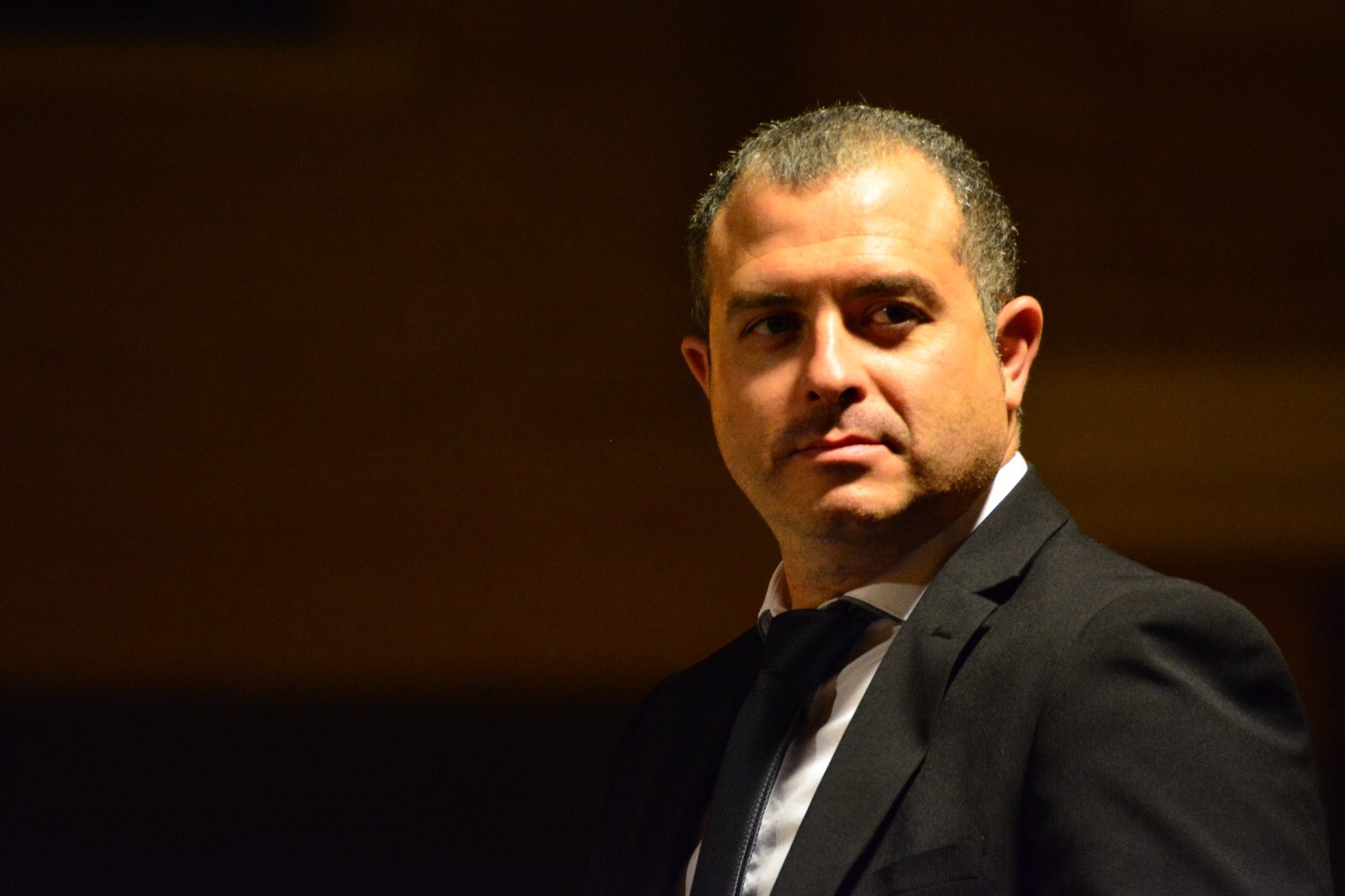
Today, maestro Rivas “directs” us a few words to tell us more about his melodic life and work:
Hello David. Do you remember the first time you held an instrument with your hands?
Hello. First, thank you very much for thinking of me and my work.
From a very young age, at three years old, I was already playing the conductor with my grandmother's chocolate stirring stick, or pretending to play the cymbals with pot lids. It seems that I had it clear. My first contact with real instruments was at age 11, with percussion in the La Lira Band of Toro, my town, and then with the saxophone.

Do you have a preference for any instrumental family?
At the time I chose the saxophone as my main instrument to carry out my studies at the conservatory, but I must confess that the piano is my weakness. Also the cello.
Although I am more of a woodwind player, I am very attracted to percussion as a vast and full of possibilities group, and strings as a personal taste.
How many kilometers do you think you do annually for professional purposes?
Traveling on weekends has become another routine in my life. I use the train whenever I can so as not to accumulate excessive fatigue. I don't know exactly the number of kilometers I travel annually, but, as a fact, the railway company provided me with an extract of my trips in 2023 and I calculated about fifteen thousand kilometers that year. Adding road trips and international flights, the figure would double, for sure.
What is special for you about a music band?
It is the group where many musicians have been 'raised' and trained before undertaking higher education. In Spain, there are more than six thousand bands. It is a meeting place, a second family for many members, and I also think that the band is more eclectic, it reaches out to a wider audience and connects better with the feeling of belonging of a people.
In what part of your professional routine are you most comfortable?
I am a teacher by vocation, I am passionate about it, and I have been clear about it since I was a child. I discovered composition as a hobby to give free rein to my creativity, although it has become my second job. I am very lucky because I can develop my two passions: teaching young people, which keeps me grounded, and artistic composition. Although I love premiering works and visiting music bands, I recognize that where I feel most comfortable and where I exceptionally enjoy myself is teaching at the institute and also during the creative process of work. Spending weeks locked in my studio, coming up with ideas, and developing them on paper is what I enjoy the most.
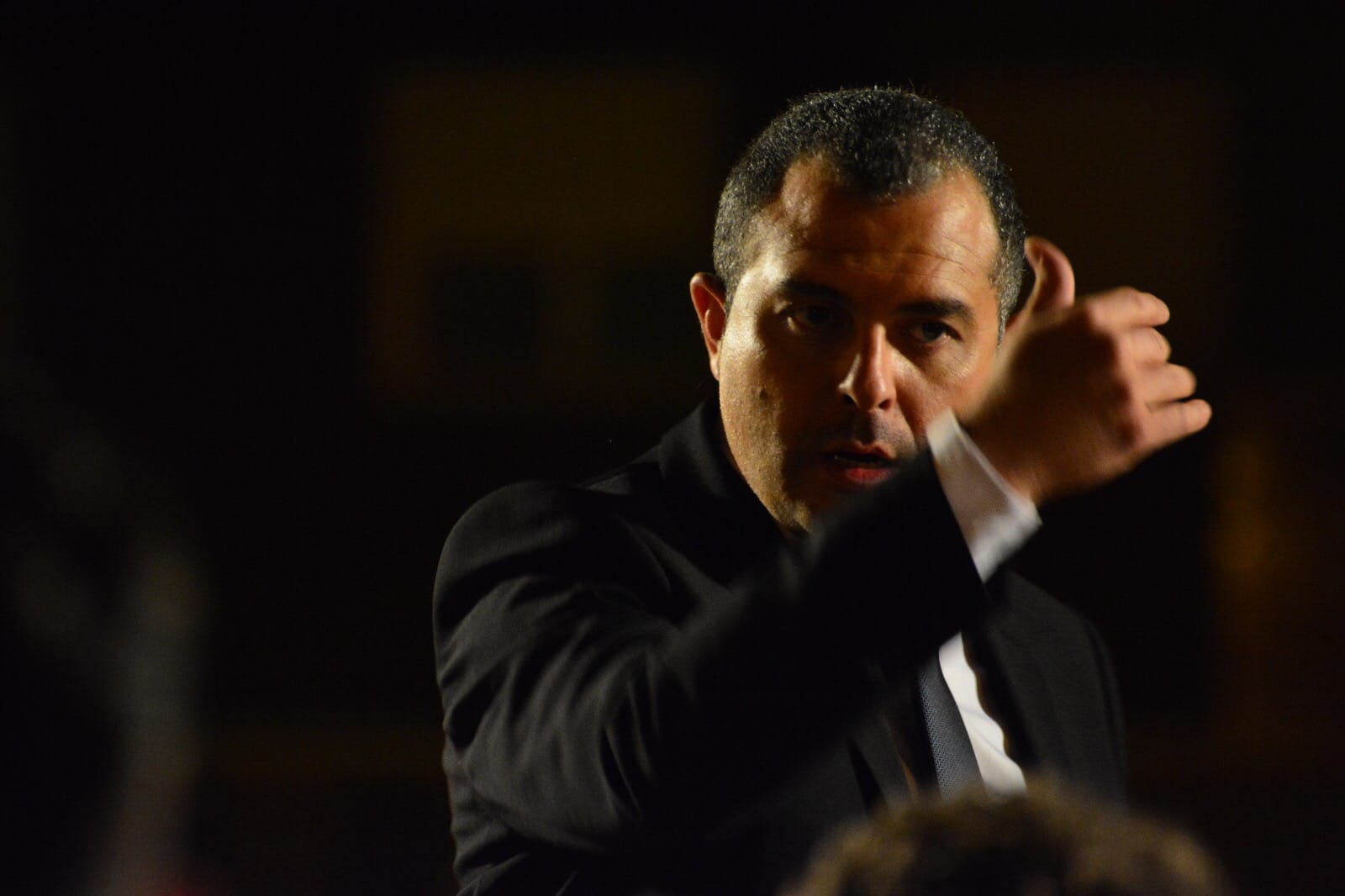
What do you think of Artificial Intelligence? Does it help the musician or relegate him to the background?
It is clear that this technology is here to stay and that it will make life easier for humanity in many areas, but I am clear that artificial intelligence will never possess what for me is of vital importance in music: soul and heart. It is impossible to reach the emotional level of a human being when it comes to composing, performing, or conducting.
What kind of music do you listen to when you are with friends or in relaxed environments?
A variety of styles. From soundtracks to rock (ballads by Scorpions or Metallica). Also English and Spanish pop or New Age music.
Do you have a favorite spot in Castilla y León or Spain?
I have many. I think it is important to make some places “ours” to disconnect from the world and talk to oneself. In Toro, where I am from, I have spots that I frequent alone. I also love Lake Sanabria, Toledo, and enjoying my nephews in Cantabria.

As is usual at glù, our previous guests, in this case, Quesería Maín, left a question. It is this: "If you could talk to someone from your same profession, but from three hundred years ago, what would you like them to tell you?"
Someone from almost three centuries ago could be Mozart. I would ask him to tell me how he would see himself after this time, and how he would imagine society and the music world would see him over the years.
How do you feel about receiving recognition?
I have always seen awards as motivation to continue working hard. Nobody is bitter about a sweet treat, but I believe that recognition should be a turning point, a learning experience, and motivation to see that you are on the right path and that there is still much to learn and give. The real reward is being able to write music and move the audience with it.
Music is one of the “classic” seven Fine Arts, but how can we apply to your work the term “craftsmanship”, as understood by glù?
In music we tend to see only the artistic, what connects with the public, and that is why we have the idea that a musician is, above all, an artist. But I believe that we are craftsmen. At least that is my case. A performer or a director spends his whole life studying, refining his technique, and trying to achieve his own sound or style. Constructing a piece that makes sense from the sounds, shaping them with care, and putting all the tools at our disposal at the service of music. Everything is tailor-made. I think that composition has a percentage of genius, of artist, but a large percentage of work. Of artisan work.
Is there any work of yours that you are particularly fond of?
It's hard to choose, but in this case, and thanks to the fact that with them I was able to premiere music at the Palau de la Música in Valencia, or they allowed me to reach out to many bands, I would say that I have a special appreciation for “Perdónalos”, “La Ruta del Cid”, “Diego Pérez”, “Manuela Calzada” and “Los último días de Troya”.
Can I ask you to leave a question for the next guest?
Yes, how do you think you can improve or brighten people's lives with your daily work?

